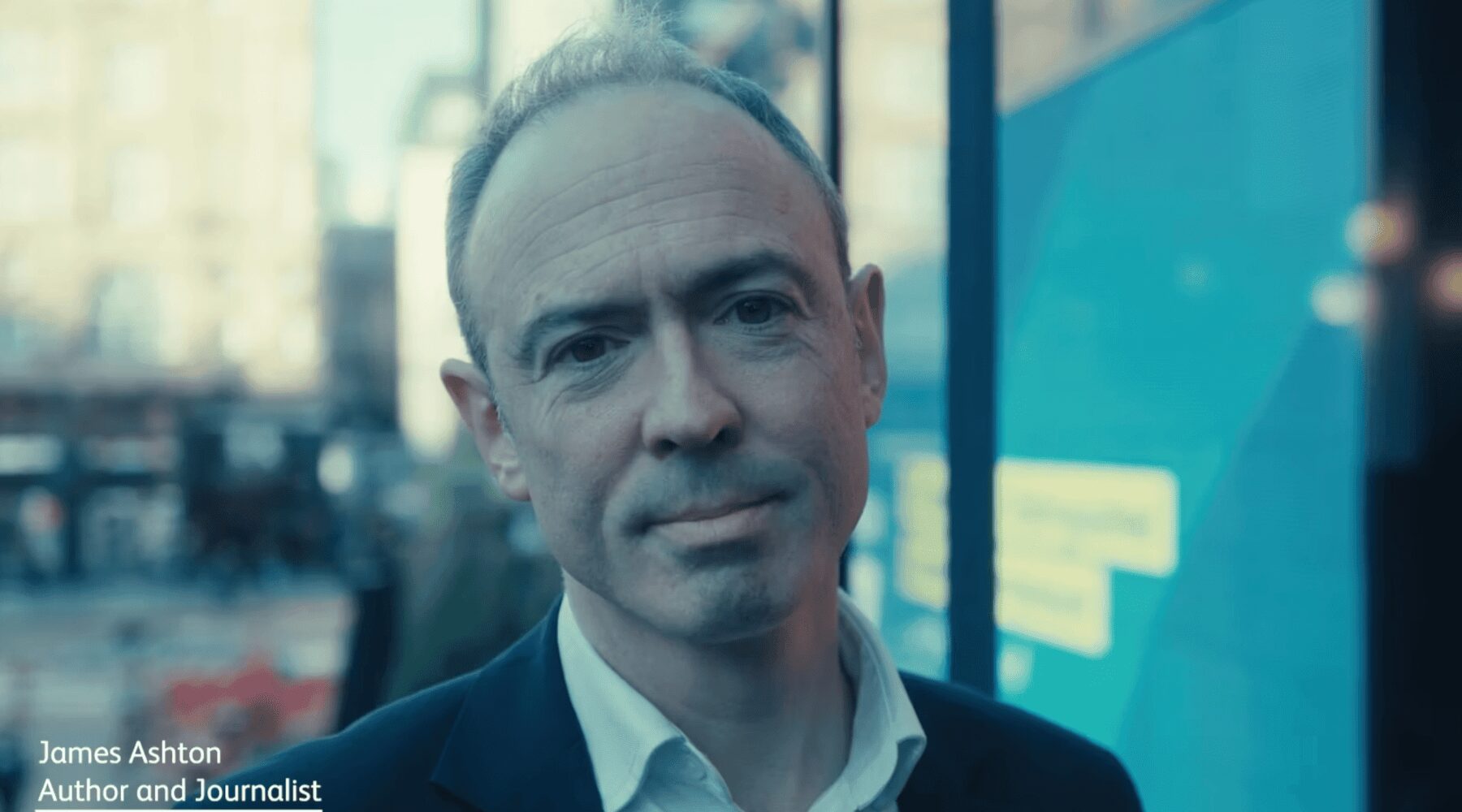I am James Ashton. I've been a financial journalist. I'm a business author. I wrote a book called The Everything Blueprint. It's the story of arm, the UK chip designer. It's a company that was founded in Cambridge in 1990. And what ARM owns the Secret source, if you like, uh, is an instruction set architecture. It's a rule book that dictates how uh, the chip at the center of most devices, um, is controlled, uh, by the software, how it interprets the computer programs. And this is a technology that's fundamental, uh, to many, um, devices that operate in, in the modern computer world. It's in laptops, uh, it's in cars, it's in data centers. It's a royalty system. And there are 15 million software developers working in the arm architecture today. So more than people in many countries. And this technology is used by some operators somewhere around the world, a thousand times a second. Small decisions you take in technology can have huge ramifications over a, a, a long, long period of time. I've always been struck how, um, startups scale up and sometimes there's a combination of, uh, great technology, great judgment and, and certainly a, a lot of luck. And I was really interested in arm's case. How did it get to this position of what I think of as indispensability in an industry? You can't imagine you would build a smartphone today without some arm technology in that. So what did it do? How did it go from being a success in its time to a success of all time? I'm really interested in the material science. You know, silicon as the material on which chips have been built for 60 years has possibly had its day. And as we get to these really, really tiny process nodes and the complexity rises on the chip, there's a lot of talk about is it some form of carbon? Uh, is it back to germanium? Is it gallium? So I think that's really interesting Talking about what goes right for the uk, uh, in chips and, and associated technologies. I think if I was at my most optimistic, I think we get our confidence back. I think we play to our strengths and our strengths down the years of being communications and its design and its material science. And I think it's bringing together the, the confidence with the people who have got the expertise and really getting the money into these industries, whether that's through the venture capital funding, but certainly making founders feel like they can take these companies onto the UK stock market and grow that way as well. So if I was been at my most pessimistic the direction this could go in as that we lose the strengths that we've got in semiconductors, ducted.

